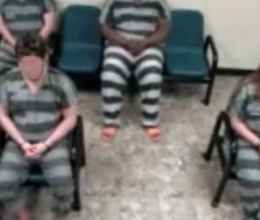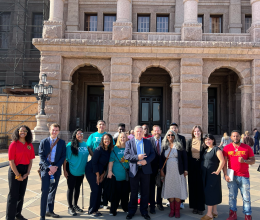
The ACLU of Texas and ACLU National staff are deeply saddened about the sudden loss of our client, Kiara Yarbrough, who passed away at the age of 26. We offer our deepest condolences to Kiara’s family, including her two young sons, and wish them comfort during this difficult time. Kiara embodied the idea that speaking truth to power is at the heart of justice. As a plaintiff in our case, Sanchez v. Dallas County Sheriff, she helped shine a spotlight on Dallas County Jail’s failure to prevent and control the spread of COVID-19.
Kiara was a courageous, committed, and creative advocate. My colleague Henderson Hill described her as someone who “embodied pride in self, in family, and in community.” Kiara’s other attorney, Alison Grinter, remembers Kiara as “hopeful and irreverent and strong even when things were bleak and hopeless. She spoke up. She loved and cared in an environment that is built to drain away hope.”
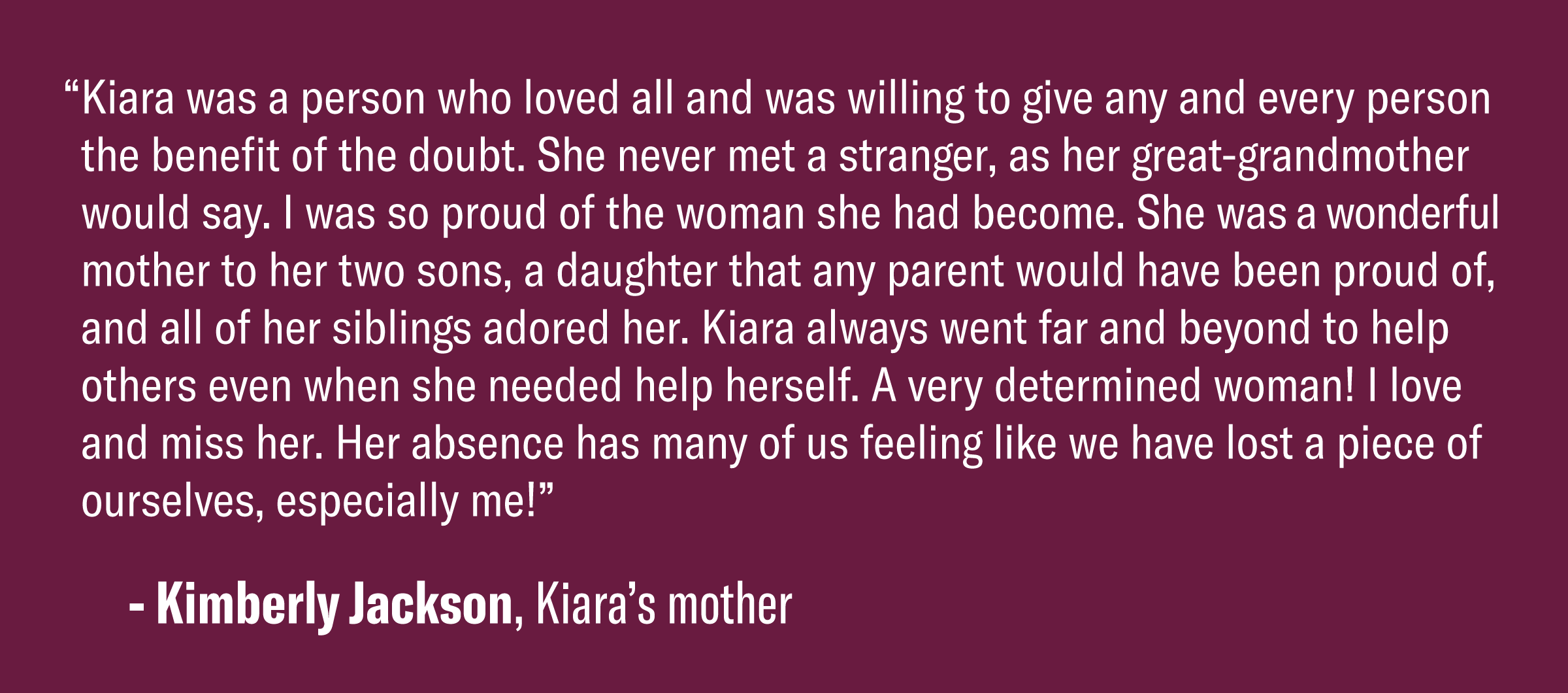
Kiara spent the majority of her last year of life detained inside Dallas County Jail. She initially spent months there awaiting transportation to a special treatment program that stopped taking new patients during the pandemic. She later returned to jail on a probation violation. In Texas, probation violations often mean minor slip ups that can lead to repeat incarceration. They cause thousands to return to state jails, and Black people are disproportionately represented in this population.
She was detained during the peak of the COVID-19 pandemic. During the early and uncertain days of the outbreak, Kiara was prevented from comforting her children in person as their schools closed and all sense of normalcy evaporated. Inside the jail, she struggled to breathe through the one dirty face mask she was given. She felt too scared to sleep without it, but she worried that it was no longer effectively protecting her. Her reason for participating in our lawsuit was simple: People in pretrial detention are people, and their health and safety matters. We agree: No one should have to spend months in detention simply because they cannot afford release or they have violated a technical rule in a system that sets them up for failure.
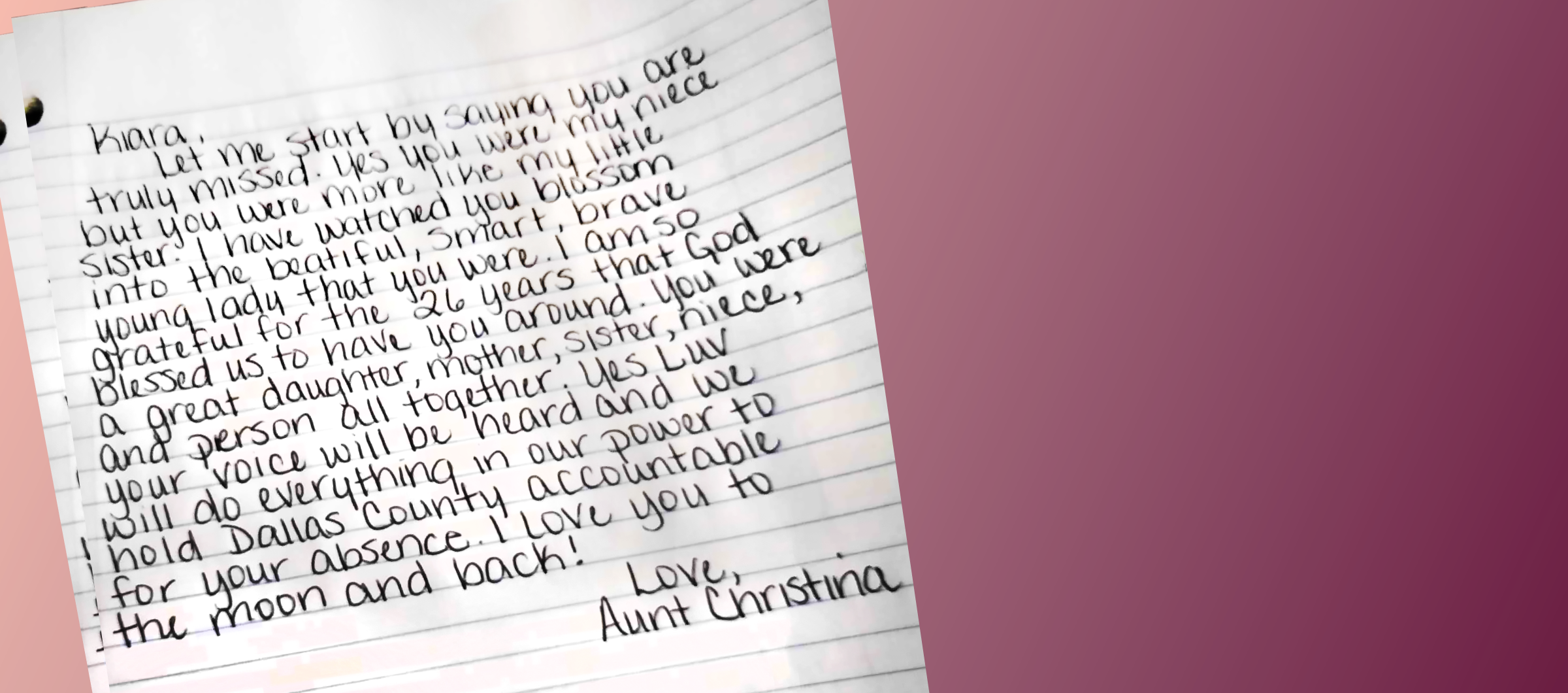
The complex history of systemic racism makes it less likely for Black people to have financial security, stable housing, access to drug treatment, and health services. In Kiara’s case, it resulted in detention when what she really needed was support. Instead, an overcrowded jail with inadequate health precautions infected Kiara with COVID-19 for which she received little care. Even after she was released after months of incarceration, an expensive electronic monitor shackled Kiara’s ankle. The monitor constrained her mobility and forced her to live in fear of landing back in jail with a single, unauthorized step or missed payment on the monitor. It controlled Kiara’s daily life until the very end.
Despite these struggles, Kiara’s compassion for others drove her to be an advocate. As the virus spread through the jail, Kiara cared for those with the most severe symptoms of COVID-19, including a 19-year-old girl named Lauren, whose health was deteriorating rapidly. Kiara tried to call for help, and when Lauren was too weak to eat or come to the phone, Kiara cooled her off and called Lauren’s mother to provide updates. Kiara and other detained people provided essential care to one another during this pandemic that saved lives while county jails left people to suffer and die. Their heroic efforts must not be forgotten.
Kiara also advocated for system-wide change. She published a powerful piece about testing positive for COVID-19 along with 19 other incarcerated women. In her essay, she reflected on the terrifying possibility that they could die at any moment. And Kiara continued her advocacy even after she was released from Dallas County Jail. Her attorney, Alison, recalled, “There was a point when so many women were sick I thought Kiara was about to break into jail to help.” As a monument to her love and activism, just days before her passing, Kiara skillfully recounted her experiences at a virtual deposition hearing.
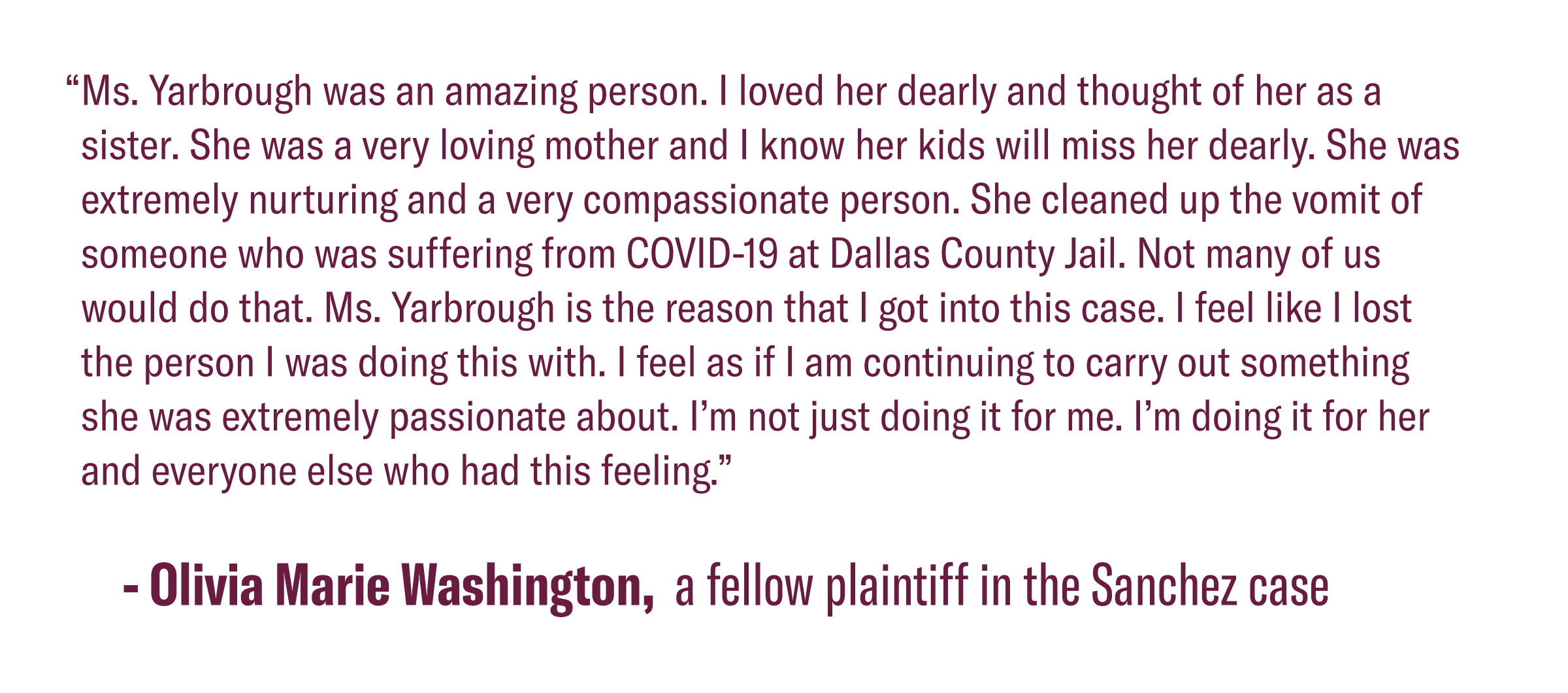
Through it all, Kiara embodied the best of us, struggling for a world where all people matter and are treated with dignity, regardless of the mistakes they’ve made. She was the first person to ever call me her lawyer, and my advocacy will always be grounded in her legacy. With 5,508 people still detained inside Dallas County Jail and more than 64,000 waiting in jails statewide, the ACLU of Texas will continue Kiara’s work with the Sanchez v. Dallas County Sheriff case advocating for the health and safety of detained people during this pandemic. We know, as she did, that change to our criminal legal system can’t wait.




